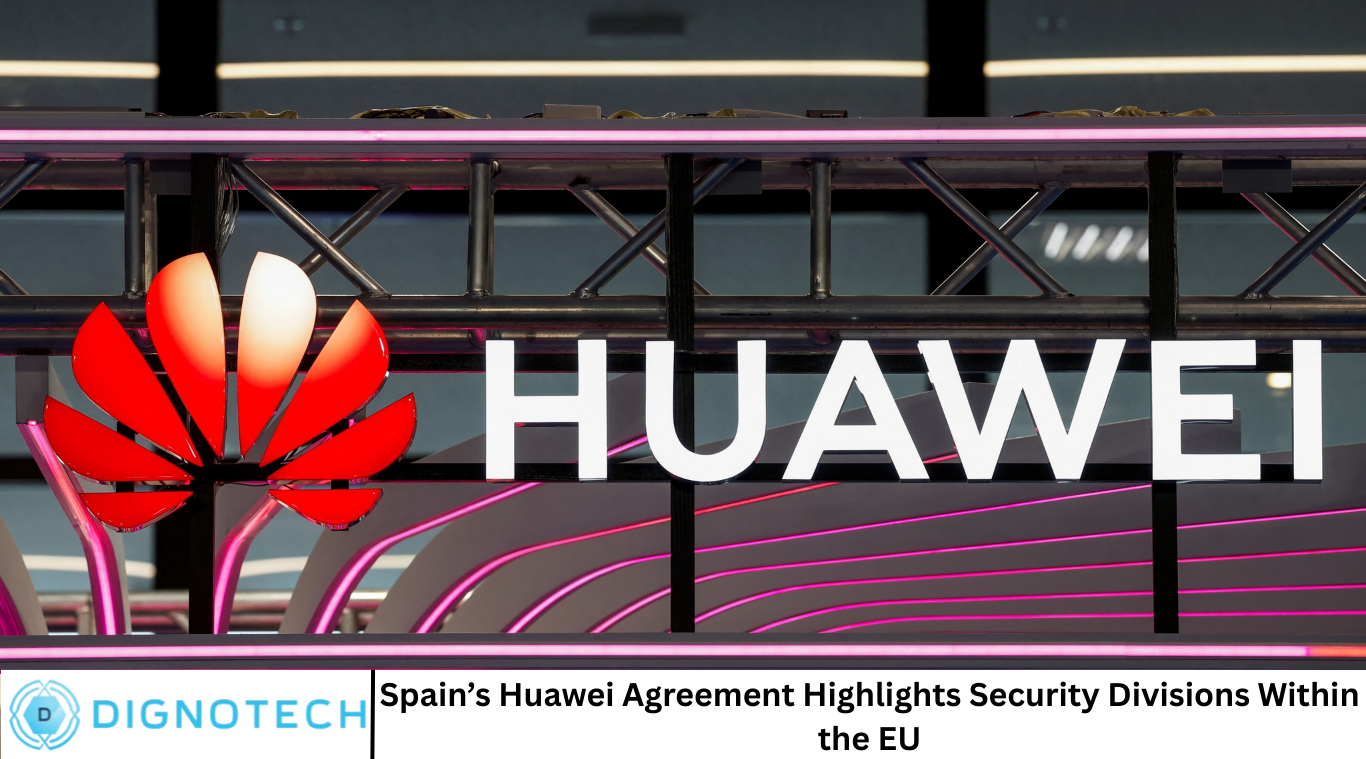Spain’s Huawei Agreement Highlights Security Divisions Within the EU

In recent years, the issue of Huawei’s role in Europe’s telecommunications infrastructure has become one of the most contentious topics within the European Union (EU). The debate touches on multiple concerns, including national security, economic interests, geopolitical alliances, and technological advancement. Spain’s recent decision to move forward with an agreement involving Huawei, the Chinese telecommunications giant, has reignited and brought into sharp focus the existing divisions within the EU concerning security and technology policy.
This article delves deep into Spain’s Huawei agreement, its implications for the broader European security landscape, and how it reflects the ongoing division among EU member states. We will explore the background of Huawei’s presence in Europe, the security concerns involved, Spain’s unique stance, the reactions within the EU, and the future outlook of Europe’s technological and geopolitical positioning.
Background: Huawei’s Expansion in Europe
Huawei Technologies Co., founded in 1987, quickly became one of the largest telecommunications equipment manufacturers in the world. The company’s expansion into Europe began in earnest in the early 2000s, with the promise of affordable, advanced 5G technology crucial to the next wave of digital transformation.
Many European countries initially welcomed Huawei’s involvement, attracted by its competitive prices and rapid innovation. Huawei offered solutions that could accelerate the deployment of 5G networks, which are essential for modern economies reliant on high-speed connectivity. However, this technological boon came with increasing concerns about security risks associated with Huawei’s alleged close ties to the Chinese government and potential for espionage.
Security Concerns and Geopolitical Tensions
The central security concern with Huawei involves fears that the Chinese government could use Huawei’s equipment to conduct espionage or sabotage critical infrastructure. This is rooted in China’s 2017 National Intelligence Law, which requires companies to cooperate with national intelligence work, raising fears about forced collaboration.
The United States has been the most vocal critic of Huawei, lobbying allies worldwide to exclude the company from their 5G networks. The U.S. argues that Huawei’s equipment could serve as a backdoor for Chinese intelligence, posing significant risks to national security and the integrity of critical infrastructure. As a result, the U.S. imposed sanctions and urged its allies, including EU countries, to restrict or ban Huawei from their telecommunications sectors.
EU’s Divergent Approaches to Huawei
Within the EU, member states have taken varying approaches to Huawei’s involvement in their 5G networks. Countries like Germany, France, and the UK initially moved toward restricting Huawei but stopped short of full bans, favoring strict security measures and oversight instead.
Other nations, including Hungary, Greece, and Portugal, have maintained more open policies toward Huawei, valuing economic benefits and faster 5G rollout. This divergence has exposed fault lines within the EU on how to balance technological advancement, economic competitiveness, and security concerns.
Spain’s Huawei Agreement: An Overview
Spain’s decision to proceed with Huawei in its 5G infrastructure deals is a notable example of this division. The Spanish government has argued that banning Huawei outright would delay 5G deployment, increase costs, and hamper digital progress. Spanish telecom operators have also pushed for Huawei equipment, citing cost efficiency and existing infrastructure compatibility.
Spain has implemented security protocols in line with EU guidelines, but it has stopped short of excluding Huawei. Instead, it opts for a “risk mitigation” approach that involves diversifying suppliers, increasing monitoring, and enhancing cybersecurity measures around Huawei technology.
Why Spain’s Stance Matters
Spain is the EU’s fourth-largest economy and a key player in the bloc’s digital and telecommunications sectors. Its pragmatic stance on Huawei sends a powerful signal within the EU about the challenges of achieving a unified security and technology policy.
Spain’s decision highlights the tension between economic pragmatism and geopolitical pressure. While Spain values strong ties with the U.S., it also seeks to maintain robust relations with China, one of its largest trading partners. Furthermore, the rapid rollout of 5G is seen as vital for Spain’s economic recovery and competitiveness, particularly in the post-COVID era.
The EU’s Response to Spain’s Decision
Spain’s move has sparked debate and concern among other EU members and EU institutions. The European Commission has called for a coordinated approach, emphasizing the importance of a common EU toolbox to manage 5G risks without fracturing the internal market.
However, some countries view Spain’s agreement as undermining EU unity on security. They fear that allowing Huawei greater access could expose vulnerabilities that affect the entire bloc’s security.
The debate also extends to the EU’s broader relationship with China, balancing economic engagement against human rights concerns and geopolitical rivalry.
Implications for EU Security and Unity
Spain’s Huawei agreement serves as a microcosm of the broader challenges the EU faces in aligning member states’ security and foreign policy strategies. It reveals how differing national interests, economic dependencies, and threat perceptions complicate efforts to form a cohesive policy.
This fragmentation risks weakening the EU’s collective bargaining power and could create security gaps exploitable by adversaries. Conversely, a rigid, one-size-fits-all ban on Huawei could slow technological progress and economic growth, putting the EU at a disadvantage in the global digital race.
Future Outlook: Navigating Between Security and Progress
Moving forward, the EU must find a balance between securing its networks and fostering innovation and economic competitiveness. This could involve:
- Strengthening joint cybersecurity frameworks and intelligence sharing.
- Encouraging diversification of suppliers to reduce reliance on any single provider.
- Investing in European 5G technology alternatives.
- Engaging in diplomacy to manage the geopolitical pressures from both the U.S. and China.
Spain’s position may serve as a catalyst for deeper discussions and reforms within the EU, pushing the bloc toward more nuanced and flexible security policies that accommodate national differences while safeguarding collective interests.
Frequently Asked Questions
Why is Huawei considered a security risk by some countries?
Huawei is seen as a security risk primarily due to concerns that the Chinese government could leverage Huawei’s technology for espionage or sabotage, facilitated by China’s intelligence laws that compel companies to cooperate with national security efforts.
What is Spain’s position on Huawei and 5G?
Spain has opted for a pragmatic approach, allowing Huawei to participate in its 5G networks under strict security controls and risk mitigation measures, emphasizing the need for rapid 5G deployment and economic competitiveness.
How do other EU countries differ in their approach to Huawei?
EU countries vary: some, like Germany and France, apply stringent restrictions; others, like Hungary and Greece, are more open to Huawei. This reflects differing security assessments, economic priorities, and geopolitical relationships.
How does Spain’s Huawei agreement affect EU unity?
Spain’s decision highlights divisions within the EU on security policy, potentially complicating efforts to form a unified approach to Huawei and 5G network security, which is vital for collective EU security.
What are the economic implications of excluding Huawei from 5G networks?
Excluding Huawei can increase costs and delay 5G rollout due to the need to source equipment from other providers, potentially slowing digital transformation and economic growth.
How is the EU addressing Huawei-related security concerns?
The EU has developed a 5G security toolbox to guide member states in mitigating risks, encouraging supplier diversification, strengthening security standards, and sharing threat intelligence.
What is the broader geopolitical context of the Huawei debate in Europe?
The debate is part of larger geopolitical tensions between the U.S. and China, with Europe caught between maintaining strategic alliances and economic relations with both powers while safeguarding its own security interests.
Conclusion
Spain’s agreement with Huawei has crystallized the divisions within the EU regarding security, technology, and geopolitics. It underscores the difficulty of balancing national interests with collective EU strategies in a complex global landscape.The Huawei debate is not just about technology; it reflects broader questions about sovereignty, alliance, and the future direction of the European Union. As the EU continues to grapple with these issues, Spain’s pragmatic stance may either foster compromise or deepen existing divisions — shaping the future of Europe’s digital infrastructure and security architecture.



